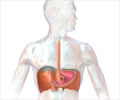Nizatidine Medication Information
Discover comprehensive details about Nizatidine, including its pronunciation, uses, dosage instructions, indications, and guidelines on how and when to take it or avoid it.
The updated prescription information covers potential side effects, precautions, warnings, and storage recommendations.
Additionally, explore the Nizatidine brands available in India and internationally, along with pricing information. For personalized advice, consult your healthcare provider.
Generic Name : Nizatidine Pronunciation : ni-ZA-ti-dine ICD Code : Y53.0 Therapeutic Classification : AntiulcersBrand Names or Trade Names of Nizatidine
India :
Axid, Tazac
Overview of Nizatidine
• Nizatidine is a histamine H2 receptor antagonist which is used to treat patients suffering from peptic ulcer disease and gastroesophageal reflux disease.Why is Nizatidine Prescribed? (Indications)
This medication is prescribed for the treatment of active duodenal ulcer, active benign gastric ulcer, and in cases of heartburn, acid indigestion or sour stomach due to gastroesophageal reflux disease (GERD).Nizatidine is used as a maintenance therapy for duodenal ulcer conditions after the healing of an active duodenal ulcer.
Nizatidine works by lowering the amount of gastric acid by inhibiting its secretion, thereby promoting the healing of the ulcer.
When should Nizatidine not be taken? (Contraindications)
Nizatidine is not recommended in the following patients:• Allergic to nizatidine
• Children under 12 years of age
• Cancerous gastric ulcer
• Serious blood disorders such as hemolytic anemia, thrombocytopenia or pancytopenia
What is the dosage of Nizatidine?
For treating active duodenal, active benign gastric or NSAID associated ulceration:• The recommended adult oral dose is either 300mg once daily or 150mg two times daily for 4 - 8 weeks to be taken in the evening or bedtime.
• The treatment for active duodenal ulcer is usually carried out for a period of 8 weeks but in most cases, the ulcer heals within 4 weeks.
For treating gastroesophageal reflux disease (GERD):
• The usual adult dose is 150mg - 300mg two times daily for up to 12 weeks.
Maintenance therapy for treating duodenal ulcer:
• A dose of 150mg once daily to be taken at bedtime.
How should Nizatidine be taken?
• Nizatidine comes as a tablet and in capsule form of 75mg, 150mg, and 300mg to be taken by mouth either once daily at bedtime or twice daily with or without food as per physician’s advice.• The maximum duration of nizatidine treatment should not exceed 12 weeks.
What are the warnings and precautions for Nizatidine?
• Before initiating nizatidine therapy for active benign gastric ulcer, it is recommended to access the possibility of cancerous tumors of gastric ulceration.• False positive test result for the presence of urobilinogen (abnormalities in urobilinogen levels leads to hemolytic anemia or various liver-related diseases) may occur during the treatment with nizatidine.
• The use of nizatidine in pregnant and nursing mothers needs medical specialist approval.
• Nizatidine treatment for heartburn or acid indigestion should be limited to 2 weeks. If symptoms persist after this time period, treatment has to be discontinued and medical advice should be considered.
• Dosage adjustments are required in patients with severe kidney disease.
What are the side effects of Nizatidine?
Gastrointestinal: Diarrhea, constipation, nausea, dry mouth, stomach painCardiovascular system: Vasculitis (swelling of blood vessels), abnormal heartbeat
Central Nervous System: Headache, anxiety, dizziness, lack of sleep, nervousness, drowsiness, abnormal dreams
Respiratory: Rhinitis, swelling of sinuses, pharyngitis, cough, wheezing or difficulty in breathing
Skin: Rashes, Sweating, pruritus, erythema multiforme, toxic epidermal necrolysis
Others: Hyperuricemia, abnormal liver enzyme levels, amblyopia (lazy eye or decreased eyesight), blood disorders (hemolytic anemia or thrombocytopenia), joint pain, impotence or decreased libido and rarely gynecomastia
What are the other precautions for Nizatidine?
• Caution is required while treating severely ill or elderly patients due to occurrence of few psychiatric reactions such as depression, hallucination or confusion.• In case of overdosage, contact the nearest poison control center where the use of activated charcoal, emesis or gastric lavage can be considered.
What are the Drug Interactions of Nizatidine?
• Nizatidine taken together with very high doses of aspirin should be avoided because it results in increased blood concentrations of aspirin leading to salicylate toxicity such as ringing sensation in the ears, nausea, abdominal pain, sweating and increased heartbeat.What are the storage conditions for Nizatidine?
• Store at a room temperature of 25°C in a tight and light-resistant container.• Keep out of reach of children.
 MEDINDIA
MEDINDIA
 Email
Email










